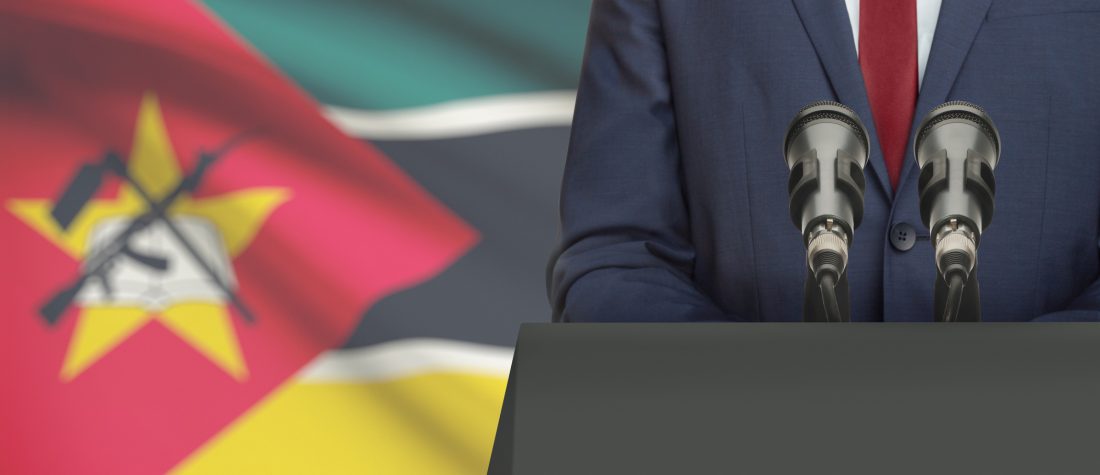On 17 February, former president Amando Guebuza took to the stand as a testifying witness in the Mozambique´s so-called Trial of the Century.
Mozambique is an extremely poor nation in the south east of Africa, with one of the continent’s longest coastlines. In recent years it has become the site of a $60bn natural gas discovery that has attracted giant drillers like Total of France, ENI of Italy – and a murderous Jihadist insurgency.
In 2013, during Guebuza’s presidency, three Mozambique state companies took out loans worth $2 billion from Credit Suisse; Russian bank VTB and other international lenders. These were ostensibly to finance domestic maritime surveillance, fishing, and shipyard projects. Yet no viable projects ever materialised and the debt was hidden from the international donors who finance the bulk of Mozambique´s budget.
A trail of fraud
Instead, 19 people are now standing trial in Mozambique for forgery, blackmail, embezzlement, money laundering – in short, for embezzling the $2bn. Last October, in the US and Britain Credit Suisse agreed to pay fines accruing $474mn for bribery and fraud actions related to Mozambique´s $2bn loans. In South Africa (a neighbour), Mozambique´s former finance minister Manuel Chang has been sitting in prison for two years whilst awaiting extradition to the US to face trial over his role.
A local tribunal hearing for Guezbuza was held in a maximum-security prison in Maputo, the capital. He claimed that in 2013 Mozambique was facing an internal armed rebellion and drug cartels pounding down its Indian Ocean coastline. The loan was needed to equip Mozambique and help defend her “sovereignty”.
As he spoke, unidentified gunmen attempted to sabotage the facility´s electricity grid and sprayed sporadic bullets on walls in a theatrical demonstration. But even bullets couldn’t distract from the fact that Guebuza´s waffling remarks simply aren’t what ordinary Mozambiquians want to hear.
Culture of fear
Why won’t the former president come clean? Well, his son is caught up in the allegations of defrauding Mozambique´s citizens. In February 2019, Ndambi Guebuza was arrested in connection with the $2bn debt scandal and has been held in prison – accused of embezzlement, fraud and money laundering.
Secondly, any revelations from Guebuza could implicate Felipe Nyusi, the current president, who is cited by several accused as a key figure in the loan debacle (he was defence minister at the time). The trial of a reigning president would set off a political and security tsunami.
This brings us to the third reason that the real culprits in this saga will likely not face the music: fear. Mozambique is notorious for its culture of high profile, unsolved assassinations of anti-corruption activists, as well a the expulsion of foreign journalists wanting to zero in on its policies.
In 2018, a prominent human rights lawyer, Ericino de Salama, was kidnapped by unidentified men, beaten, and left unconscious while exiting the premises of a TV station in the capital Maputo. Adriano Nuvunga, a professor and lead human rights activist who is leading a non-profit effort to force authorities to jail the culprits of today’s trial, has removed his family from the company to protect them. In November 2000, Carlo Cardoso, a journalist investigating a $14m corruption case (allegedly linked to the privatisation of Mozambique´s largest bank) was gunned down in broad daylight in Maputo. The gunmen claimed the son of Mozambique´s former president, Joachim Chissano had paid for the murder by cheque.
There is an entrenched climate of fear that the ruling FRELIMO party in Mozambique has carefully cultivated since 1975. Living in this climate, dozens of lower-ranking culprits imprisoned for the latest $2bn scandal will be very fearful and mindful before implicating their bosses.
Mozambique ranks a pitiful 147 out of 180 on the Transparency International Global Index and is one of the world’s most corrupt nations. The real masterminds of this $2bn loan fiasco will escape unscathed. As for Credit Suisse Bank, it has been exposed as being the bank of choice for drug traffickers, swindlers, and autocrats wishing to hide their money. Its role in facilitating Mozambique´s $2bn loan scandal will haunt the lives of poor Mozambique citizens who will in future pay back the absent money.
The only hope to get to the bottom of this scandal is that the extradition of Emmanuel Chang to the US goes ahead. In exchange for a reduced sentence, he´ll likely speak honestly when questioned by the Feds. Otherwise, a trial, a tribunal and a judicial inquiry on Mozambique´s soil and in its courts are far too compromised to be credible. It is ordinary Mozambique citizens who will pay the price.
Ray Mwareya is a global affairs journalist, writing for Newsweek, Al Jazeera, The Guardian, China Dialogue, and Reuters. Ashley Simango is a financial journalist and Accounting student writing for The Africa Report, Newsweek, and The New Arab.


